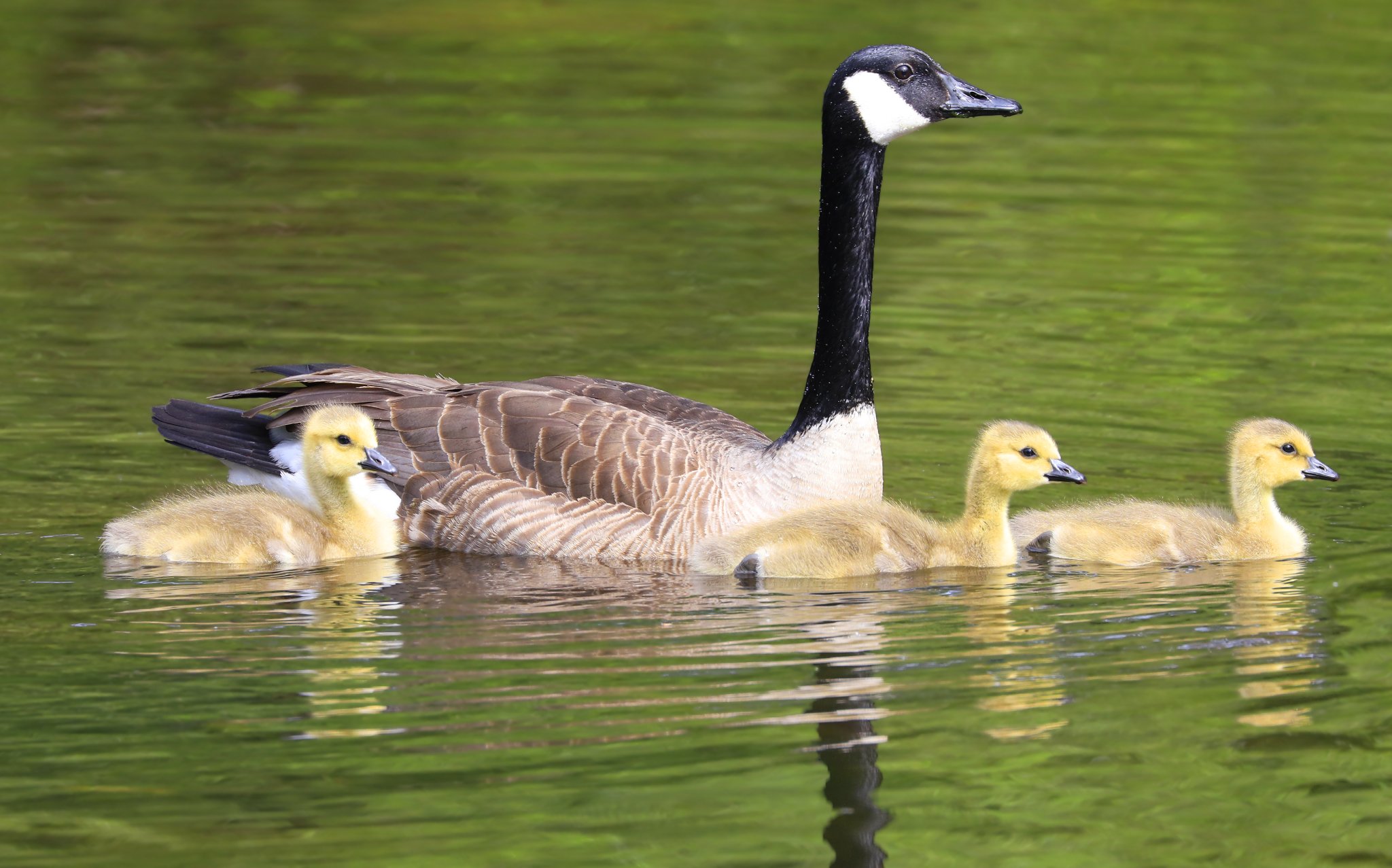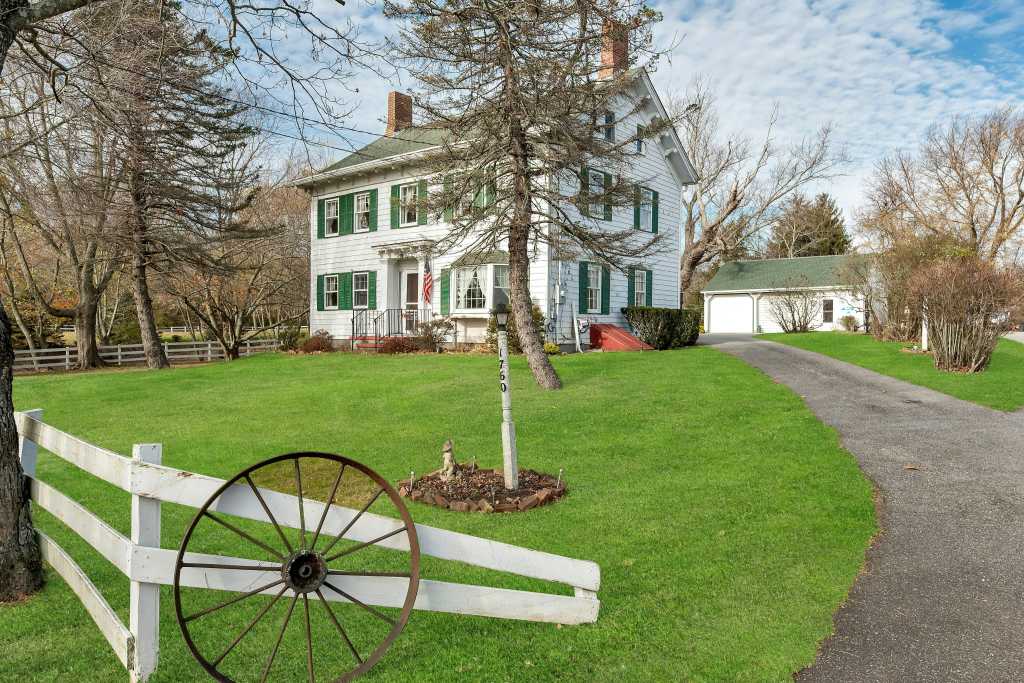Long Island's Best Adoptive Parents Are Geese in Hampton Bays

Successfully reintroduced into the wild at Hidden Pond Stables by Alexa Mack, a rider and animal care staff member at the Evelyn Alexander Wildlife Rescue Center (EAWRC), a total of nine goslings have now settled in at the location with parental geese. Uniquely, none of these goslings are biologically related to the adult geese at the pond.
“Goslings can die of loneliness,” Mack says. “That’s why we always release them with geese families. Geese are one of the best at adopting, especially if they already have goslings or are with a flock.”
This spring, the EAWRC has seen an increase in orphaned goslings. The most recent group of five was rescued after a mother goose wandered into a pool yard and several of her babies became trapped inside the fenced area. A local pool technician noticed, rescued them, and brought them directly to the EAWRC, where they were examined and then relocated to a flock that took them in without question.
However, it’s not as simple as finding any bird. Many waterfowl, like mallards or swans, will attack or even kill babies that aren’t their own. “Geese are just really good at this,” says Rose Lynch, an EAWRC animal care staff member. “They are some of the best adopters in the bird world.”
“Geese engage in what is called gang brooding,” describes Ryan Gilmartin, another EAWRC staff member, “where adult birds raise all the babies in a group. It allows the parents to take turns resting, while others guard and guide the goslings.” As a result, it’s not unusual to see two adult geese walking with a dozen or more babies, some theirs, others not. “Geese don’t count their goslings,” adds Lynch. “They simply don’t care and nurture any gosling given to them.”
The geese in Mack’s riding community have been a vital part of this rehabilitation process. Multiple flocks live near Hidden Pond Stables, where several successful gosling introductions have taken place. The recently introduced group of five joined a previously introduced group of four. “And people in this community have been amazing about finding additional families for these goslings,” Mack explains.
Geese have strong pair bonds and high social intelligence. They are also sensitive to stress, especially when housed in the EAWRC animal hospital. Adults and babies alike can become anxious or even ill when kept in human care too long. Wildlife staff always ensure goslings are kept together, those interactions are crucial to their health.
“There’s a lot we simply can’t teach them,” Lynch says. “We can’t show them how to migrate, or what to eat, or how to avoid cars. They have to learn those things from other geese.”
Right now, during mating season, adult geese are molting, shedding feathers necessary for flight. Once goslings are one to two weeks old, their parents become grounded for several weeks. “This ensures they stay with their young and keep them safe. It’s an evolutionary trait,” says Lynch. It’s also why geese are seen crossing roads more often and taking longer routes to reach food and water.
“Goslings are what scientists call precocial,” Lynch explains. “They hatch with their eyes open and the ability to walk and run as soon as they exit the egg. It’s the opposite of altricial, which we humans are.” Though seemingly independent, they’re still vulnerable. Cold water, bad weather, or a wet downy coat can be fatal. “If a gosling is extremely cold because they are wet, it can shut down their system. And even when we introduce goslings to adoptive parents, they have to be completely dry. Otherwise, geese will reject a wet baby, sensing something is wrong or unhealthy.” Most people don’t realize geese often exit the water at night, when it gets colder.
“Geese are going through a tough season,” Lynch warns. They are raising goslings, navigating traffic, and defending their families, all while flightless. Many Long Island geese are also no longer migrating on schedule. Warmer winters mean more are choosing to stay longer.
“If you see a goose family crossing a road, slow down, give them space,” says Lynch. “They are beautiful creatures and wonderful members of our community. They eat all the bugs we don’t like.” Be patient, they have nowhere else to go, and their babies depend on them.
The Evelyn Alexander Wildlife Rescue Center is located at 228 West Montauk Highway, Hampton Bays. It can be reached at 631-728-4200, and animal emergencies can be reported at 631-728-WILD (9453). The center is open 9 a.m.–5 p.m. seven days a week. Visit wildliferescuecenter.org for more information.









